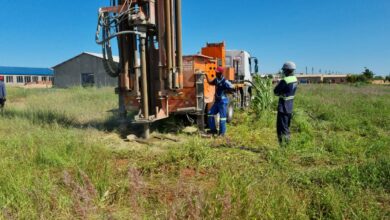Mat South to benefit from US$37m govt loan

Matabeleland South province is one of four priority provinces set to benefit from the US$37 million loan secured by the government from the International Fund for Agricultural Development (IFAD).
The loan is set to fund the Horticulture Enterprise Enhancement Project (HEEP), that will increase agriculture production and productivity, especially by horticultural farmers, enhancing food and nutrition security, income, increased opportunities for value addition and the development of agro-business value chains.
Matabeleland South is one of the provinces that has been severely affected by the current drought, and the financial injection will help to initiate irrigation projects that will enhance the people’s livelihoods.
Addressing legislators, Prof Ncube said the project (HEEP) will benefit mostly smallholder farmers in horticulture gardens.
“The Project will be located in four provinces: Matebeleland South, Masvingo, Midlands and Manicaland for the Village Horticulture Gardens (VHGs) and for the 4Ps, the project will be located in well-functioning irrigation schemes throughout the ten provinces of the country, in particular in the high potential regions of Mashonaland provinces and Manicaland province.
“The project will support the following components; component 1: village horticulture garden and the 4Ps, mobilisation and development, component 2: access to finance, component 3: institutional support and project coordination.”
Prof Ncube said agriculture is one of the economic pillars of Zimbabwe and the support for small holder farms will go a long way in achieving the thrust of the National Development Strategy 1 (NDS1) of food security.
“The implementation of the project will result in the following benefits; employment creation for the local communities; capacity building for local communities; climate-smart agriculture and easy market access,” he said.
The other benefits are improved food nutrition and security; increased household incomes; improved resilience to climate change effects and economic shocks, and increased production and productivity.”






